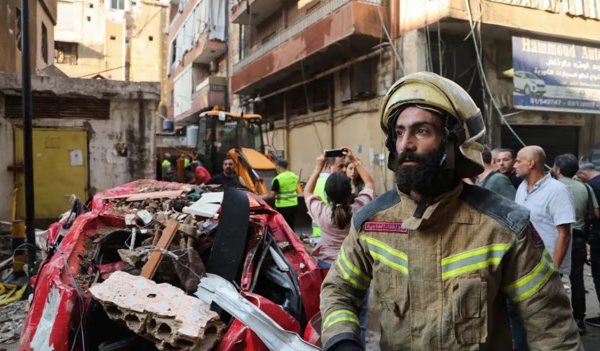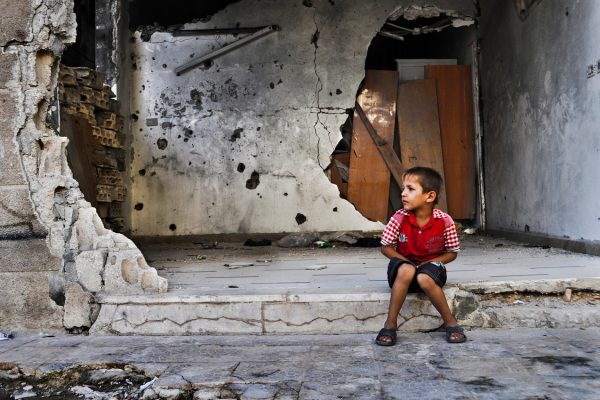You might never have asked yourself if there is bias when it comes to sponsoring an orphan, especially through photos. Zakat Foundation of America learned that there definitely is.
You might never have asked yourself if there is bias when it comes to sponsoring an orphan, especially through photos. Zakat Foundation of America learned that there definitely is.
Political and community leaders around the world are assessing their abilities to help as Russia’s invasion into Ukraine continues and creates yet another refugee crisis.
Correspondents and laypeople alike provide commentary on the comparisons and differences between these refugees and those from places like Afghanistan, Iraq, Palestine, and Syria.
Some have gone so far as to make unintentional — and sometimes clearly intentional — comments that imply these European refugees are less deserving of war than their Afghan, Iraqi, Palestinian, and Syrian counterparts.
“But this isn’t a place, with all due respect, like Iraq or Afghanistan, that has seen conflict raging for decades,” CBS News correspondent Charlie D’Agata said. “This is a relatively civilized, relatively European — I have to choose those words carefully, too — city, one where you wouldn’t expect that, or hope that it’s going to happen.”
And as Ukraine continues to suffer, biases become increasingly apparent.
“Now the unthinkable has happened to them, and this is not a developing, third-world nation; this is Europe,” said Lucy Watson, a correspondent for ITV News.
D’Agata, Watson and other correspondents for different news outlets have been making headlines for these and other comparably troublesome — racist — comments. The Arab and Middle Eastern Journalists Association was rightfully quick to provide a statement.
“AMEJA condemns and categorically rejects orientalist and racist implications that any population or country is ‘uncivilized’ or bears economic factors that make it worthy of conflict. This type of commentary reflects the pervasive mentality in Western journalism of normalizing tragedy in parts of the world such as the Middle East, Africa, South Asia, and Latin America. It dehumanizes and renders their experience with war as somehow normal and expected.”
Helping Ukrainians at this time is a clear priority for those who are able and willing to do so. But this selective aid — when others are desperate but not given the public outcry — hardens our collective heart. And we must soften it.
At the end of each day, as this conflict rages on and others in different regions do the same, more children are losing their parents. To violence. To disease. To refugee abandonment. To all sorts of factors that are beyond their control.
And these orphaned children will need support from whoever around the world can give it to them. Each refugee crisis worsens the global orphan crisis.
We must help Ukrainian orphans, Palestinian orphans, Yemeni orphans, Afghan orphans, Syrian orphans, Venezuelan and Colombian orphans.
But we must help them despite where they are from, not because of it. Because where they’re from shouldn’t matter. How they look shouldn’t matter. All that should matter is whether they have someone to care for them or not.
You might never have asked yourself if there is bias when it comes to sponsoring an orphan, especially through photos. Zakat Foundation of America learned that there definitely is.
It used to be that if you wanted to sponsor an orphan with Zakat Foundation of America, you would go to zakat.org’s orphan sponsorship page, look through the photos of the children who need sponsorship, and pick one to support.
But they found that a lot of children were not being supported for long periods of time compared with their peers for superficial reasons, like their age, what country they’re from, or their skin tone.
Upon realizing this, Zakat Foundation of America made the decision to change its approach to marketing its humanitarian campaign. It’s not about picking the cutest kid, or the younger ones, or anything like that. It’s about helping an orphan because it’s the right thing to do.
All this while maintaining the sponsorship cost of $50 per month (or $600 for the entire year) for each orphan. The orphan still gets comprehensive health care (mental and physical), education, three meals a day, and Eid gifts that warm their hearts.
So now, the donor still gets all the information about the child. But it’s after the donor has made the decision to sponsor — this is so the focus is on sponsoring the child, not which child to sponsor. The donor will get updates through a dashboard about the child’s health, how they are doing in school, and sometimes even pictures of artwork.
Not all sponsors who selected orphans by picking from photos were consciously implementing their internalized biases. And it doesn’t have to be a deliberate choice to be biased. It doesn’t have to be about race. It doesn’t even have to be about skin tone. It comes down to making surface-level judgments in general.
There is a clear line between helping people because they need it and helping people based on our own perception of them as needing it more. Making the conscious choice to sponsor with love is better than making the decision to help based on physical appearance, age, gender, country of origin or any other comparable factors.
Maybe choosing with love will extend beyond orphan sponsorship and inspire more people to support refugees, from Palestine to Ukraine to Colombia.
Learn more about Zakat Foundation of America’s orphan care program here, and check the home page regularly for updates about how to help refugees from Palestine, Ukraine, Burma and other countries.





